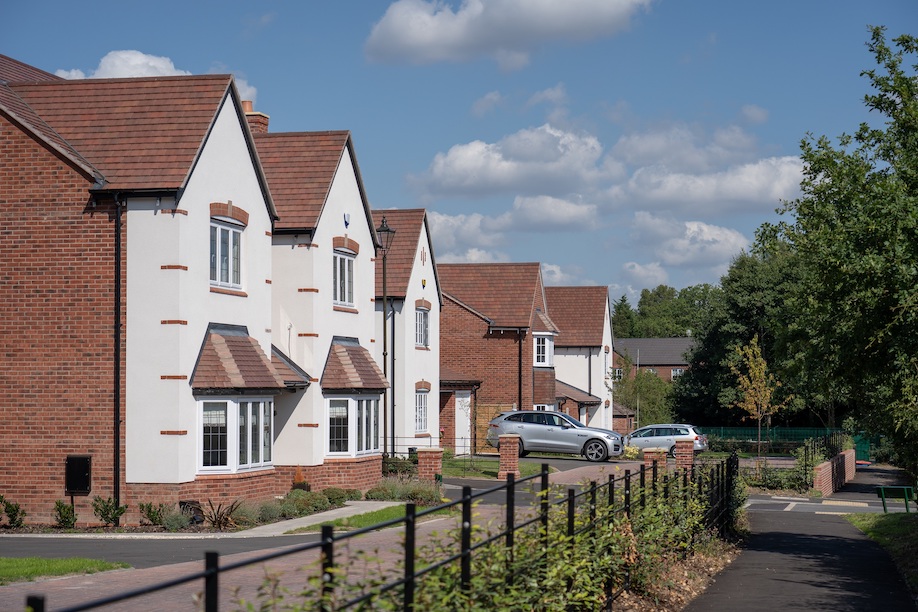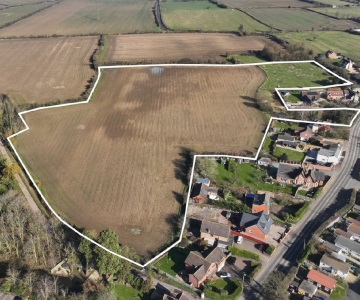Planning Reforms For New Home Are Failing The Next Generation
For young people, home ownership has been decreasing for several decades while rent prices soar. Millennials born in the 1980’s have got the rawest deal, enduring rapid house price rises and tighter credit conditions, despite lower interest rates helping to ease mortgage borrowing costs.
With older generations having been at the “sharp end” of high interest rates, a typical UK first-time buyer in 1974 would have paid £9,000 in net interest by the end of their mortgage, compared to £63,000 for a first-time buyer now, research by the Resolution Foundation has found. The average deposit required to get onto the property ladder has tripled in real terms over the past 20 years, from just shy of £11,000 in 2000, to £33,000 in 2020.
There is now the added pressure of the doom and gloom regarding the economy, with the cost of living continuing to escalate significantly.
The Government’s latest answer? A reform of the planning system! It is considered that the current planning system acts as a drag anchor on the economy, being unpredictable and unresponsive. It is also part of the cause of the growing societal problems. Last year, for the first time in a generation, the average house earned more than the average worker.
The Levelling Up Bill has been trumpeted as the panacea to re-balance the north and south and yet, these seem unambitious with very little economic re-balancing and instead, tinkering with a planning system and bringing yet more uncertainty!
Unambitious Reforms
The big plan from government is beauty, infrastructure, democracy, environment and neighbourhood. Gove thinks if you get these things right then people will become much more pro-development. He wants design rules that make sure new buildings look good, and a levy on development so Councils can ensure public services keep pace with new housing.
Yet even this might not be enough. Prince Charles’s Duchy of Cornwall is planning a new 2,500-home town in Faversham, Kent which comfortably meets all these criteria. It’s even based around tree-lined streets and a cricket pitch. However, it still faces local opposition and a legal hold-up.
Much has been made in the press of the Neighbourhood Street Votes and increases to second homes council tax and whilst they make a nice headline, they do little to deliver actual homes. The Government have also wanted to reduce what is regarded as speculative applications and applications by appeal by only allowing development in accordance with an up to date Local Plan. Whilst most Planners would wholeheartedly agree with the principle, as of today only 39% of Authorities have an up-to-date plan and many haven’t had a Local Plan since the 1990s.
The lack of plan leads to a lack of allocations, leading to a lack of planning permissions and thus lack of development, which eventually results in a shortfall of house building, and thus, speculative development comes forward. While it may be a flash point for some, this is exactly how the planning system is currently designed to work. If plans do come forward quicker and whole-heartedly seek to address housing needs, then developers would be enthusiastic supporters.
The truth is that among the 338 pages of this sprawling bill, there is scant detail of how things will work in practice, let alone actually “level up” the country.

Difficult Choices for Government
So, have we got the “whole new system” and “no more fiddling around the edges” which was promised in the White Paper in 2020? No. But the great Tory planning retreat is hardly surprising. One of No 10’s objectives is not to upset its own MPs.
So, it is now trying to appease the nimbyism the Prime Minister once wanted to crush. “They can’t see their interest is in there being more homeowners, more aspirational voters,” he would say in private of those opposing his planning changes.
But he has lost that battle. Planning reform is off the agenda. Some in Whitehall fear that Tory MPs, worried about the Lib Dem threat, will demand further concessions and protections.
Bleak Future?
The housing crisis is so acute the Government needs to do everything to fix it. Unfortunately, whilst the latest reforms include some good ideas, they are timetabled to take effect in 2024 following several iterations and changes to law. In the meantime, we can expect more Council inertia which does nothing to stimulate growth in the economy or deliver much needed homes.
A choice is fast approaching: to accept a low-growth economy, dismal prospects for the young and a bleak future for the party of the property-owning democracy, or to reform, rejuvenate and build the houses and opportunities for a generation of young people who urgently need them.
The proof will be in the pudding: can these reforms really overcome some entrenched and inherent problems with plan-making to deliver the quantum (and quality) homes we need in the locations which need them without relying so heavily on an element of so-called speculative development? Key areas will still need scrutiny when regulations start to emerge.
Thinking about land promotion for your land site?
We’re actively seeking strategic land sites to add to our land promotion portfolio.
With a proven track record and strong success rate, landowners across the country are encouraged to contact us to find out how we could help you maximise the value of your land.




